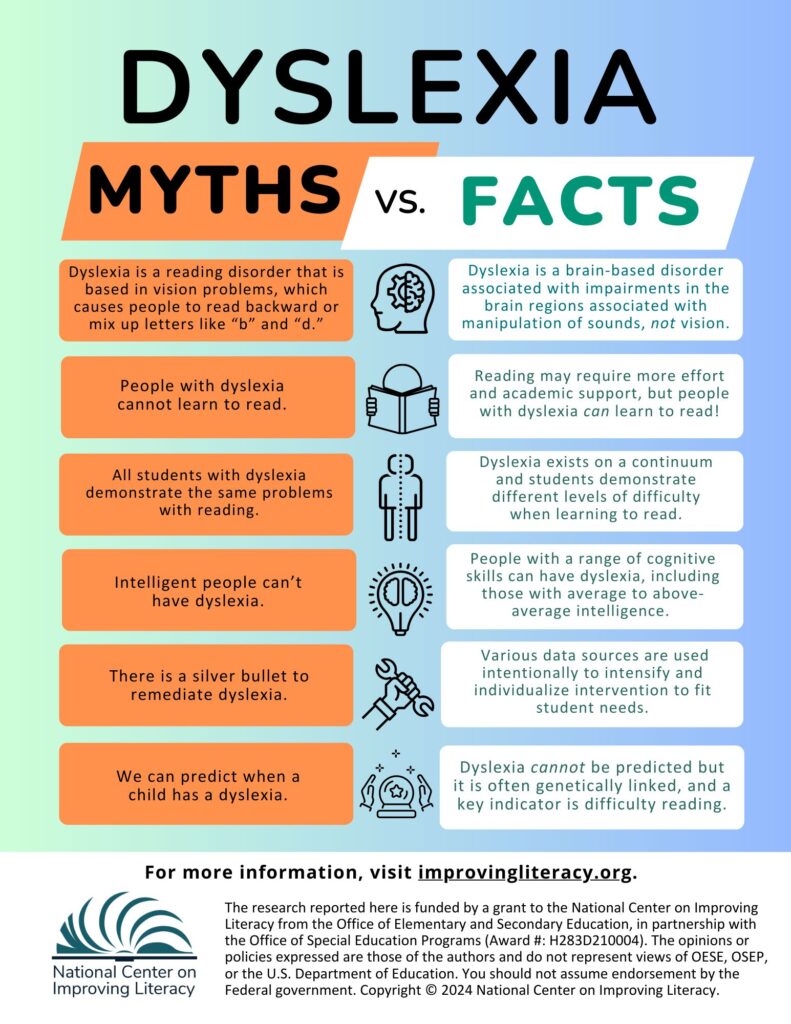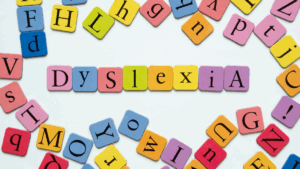| Myth | Fact |
| All students with dyslexia demonstrate the same problems with reading. | Dyslexia exists on a continuum, and students with dyslexia demonstrate different levels of difficulty learning to read. |
| Dyslexia is a reading disorder that is based in vision problems, which causes people to read backward or mix up b and d. | Dyslexia is a brain-based disorder associated with impairments in the brain regions associated with manipulation of sounds, not vision. |
| People with dyslexia cannot learn to read. | Reading may require significantly more effort and academic support for someone with dyslexia, but these students can learn to read! |
| Intelligent people cannot have dyslexia. | Dyslexia impacts individuals with a range of cognitive skills, and with average to above average intelligence. Some individuals with dyslexia have well above average abilities in problem-solving and People with dyslexia cannot learn to read. creativity. However, these above average skills do not exist because an individual has dyslexia. |
| All students with dyslexia will perform poorly on tests of phonological processing. | While many students with or at risk for dyslexia get low scores on phonological processing tests, approximately 25-30% of these students will do fine on these measures. This is why it is important to collect multiple sources of data to identify all students who are demonstrating word reading difficulties, and to provide appropriate evidence-based reading instruction. |
| We can predict who will respond to instruction. | Research is still ongoing regarding which specific intervention is best for students with or at risk for dyslexia. All students who have or are at risk for dyslexia should receive evidence-based reading instruction, and their progress should be monitored over time. Closely monitoring students’ response to instruction over time is one of the best ways to determine whether the instruction being provided meets the student’s needs or other instructional programs or supports are needed. |
| There is a silver bullet to remediate dyslexia. | Providing students with dyslexia with evidence-based reading instruction and the necessary supports to succeed involves many individuals within a school system. Schools should: Screen all students for dyslexia risk; Provide high-quality, evidence-based reading instruction to all students with or at risk for dyslexia; Intensify supports for students who need them to succeed and individualize intervention for students with dyslexia; Continue to nurture students’ interests and strengths to help them become successful learners. |





